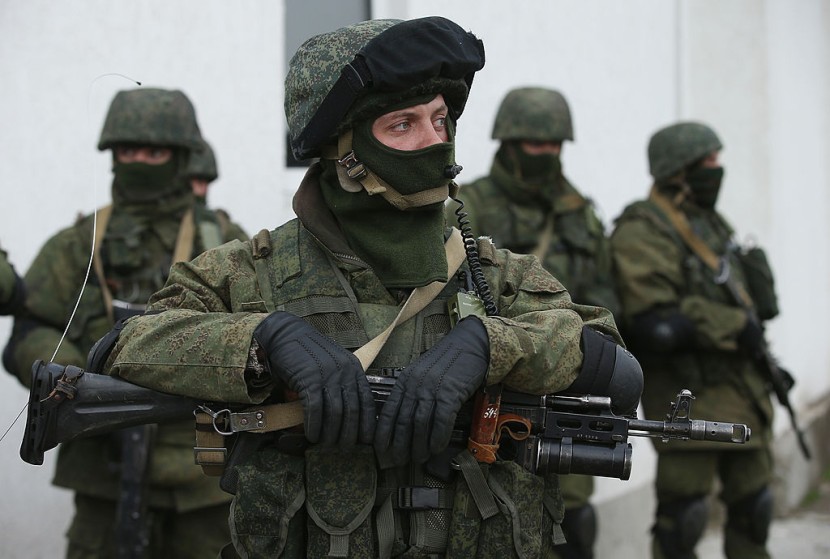
As fears of a looming conflict continue to grow, an online video has emerged, alleging the presence of Wagner Group mercenaries in Poland.
The video, posted on the platform "X," showcases a Wagner sign accompanied by a QR code within what appears to be a Polish bathroom, as per Yenisafak.
Alleged Wagner Group Presence in Poland
The individual in the video proceeds to tear down the sign and attempts to flush it down the toilet-a symbolic gesture of defiance against the presence of the group.
The QR code, when followed, directs users to a website where they can apply to join Wagner Group. Strangely, this development contrasts with Yevgeny Prigozhin's statement on July 30, wherein he claimed that Wagner did not intend to carry out any recruitment activities at the moment.
Prigozhin's involvement and connection to Wagner Group is significant, as he is often referred to as Putin's chef due to his proximity to the Russian president.
This development coincides with reports that Alexander Lukashenko, the President of Belarus, ordered the expulsion of several Wagner Group mercenaries from the country.
Lukashenko also reportedly declined to finance their stay in Belarus. According to the VChK-OGPU Telegram channel, operations to remove Wagner Group personnel commenced earlier in the month, with a second phase planned for August 13.
The group's moderator stated that the individuals being repatriated to Russia were mercenaries who had rejected offers to continue their services in Libya, where the Wagner Group has been active for years.
Tensions between Poland and Belarus have escalated, prompting Poland to announce its intention to send 10,000 troops to reinforce its border with Belarus. This decision follows an earlier announcement of deploying an additional 2,000 troops to the border over the next two weeks.
The move comes as a response to alleged violations of Polish airspace by Belarusian military aircraft. Mariusz Blaszczak, the Polish Defense Minister, emphasized that the situation in Belarus is closely coordinated with Russia's actions, raising concerns of a broader regional involvement.
The situation took another turn when Poland arrested two Russian individuals suspected of disseminating propaganda related to the Wagner Group. The arrests were conducted by Poland's International Security Agency in collaboration with the police. The arrested individuals are facing charges of spying and other related activities.
This development highlights the deepening unease surrounding the Wagner Group's activities and its potential influence on regional dynamics, according to The National Via MSN.
Read Also: Kim Jong Un Orders North Korea Mass Missile Production Ahead of US-South Korea Joint Military Drills
Implications for Conflict, Migration, and Stability
The Wagner Group, a Russian paramilitary mercenary organization based in Belarus, has been a focal point of these tensions. The group's presence in Belarus has led to accusations of its potential involvement in facilitating illegal migration across the Polish border as a provocation.
This heightened state of alertness stems from the group's actions following its brief rebellion against Moscow in June. The situation in Eastern Europe remains complex, with concerns about the spillover of conflicts affecting neighboring countries.
This unease is particularly prominent in Poland, given Russia's invasion of Ukraine in February 2022. Additionally, Ukraine's ongoing counter-offensive against Russian forces has been characterized by incremental progress, with recaptured territories and ongoing clashes.
Ukrainian forces recently reclaimed several square kilometers of territory around the town of Bakhmut, previously captured by Russian forces. While progress has been slower than anticipated, Ukraine continues to push against entrenched Russian positions.
The evolving situation is closely monitored as it has implications not only for the countries directly involved but also for the broader regional stability. Recent incidents, including drone and missile attacks, underscore the volatile nature of the conflict.
These actions have led to casualties and destruction in the region. The ruble's decline against the dollar further reflects the economic and geopolitical uncertainties at play. As the situation continues to unfold, international observers remain vigilant, closely following developments in Eastern Europe and their potential impact on global stability.
The Wagner Group's activities and their implications for regional dynamics will undoubtedly be central to shaping the course of events in the region, Express reported.








